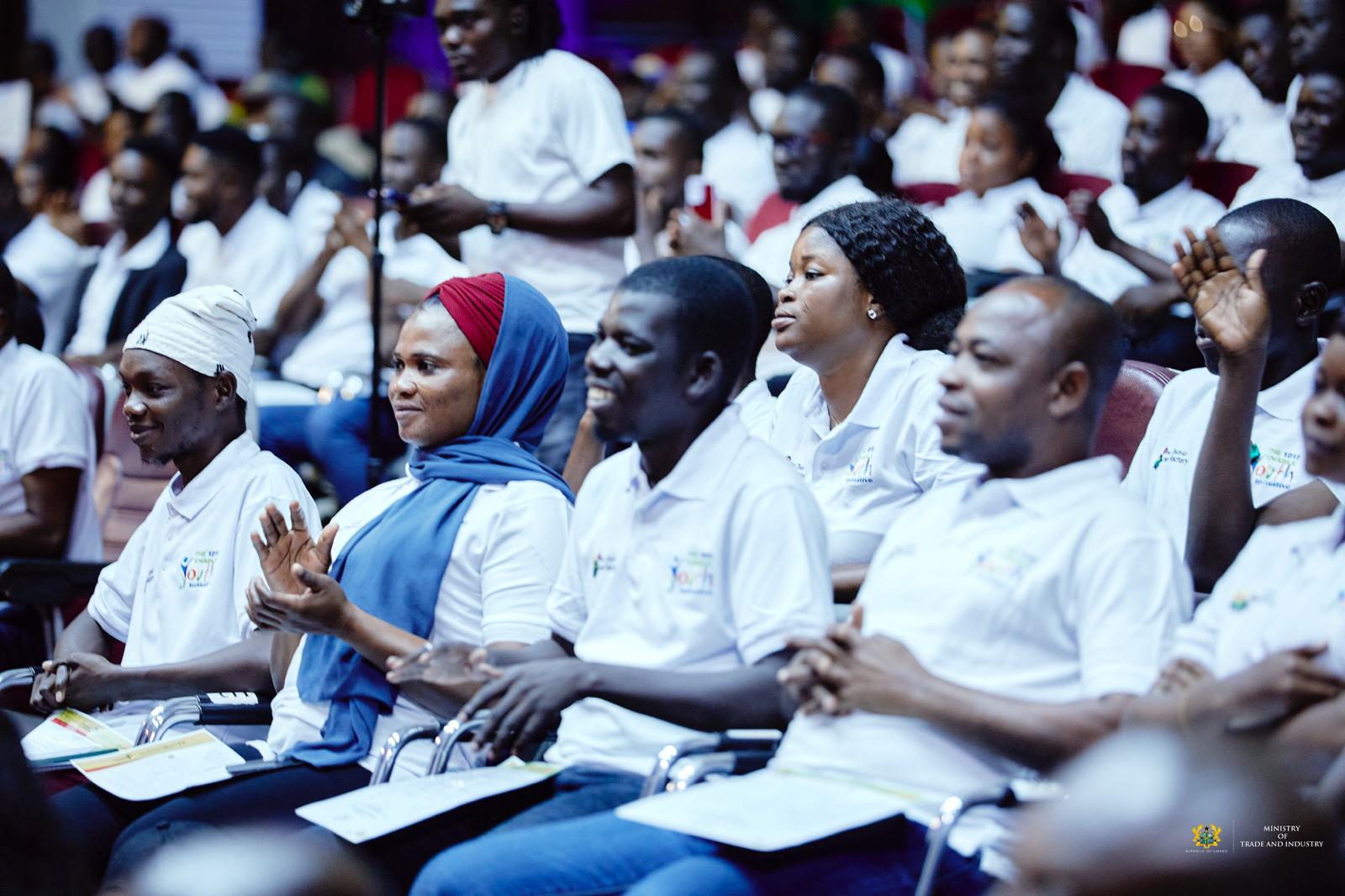
Tackling unemployment with 1D1F: Enable Youth Initiative to support agro businesses launched
A new initiative under the flagship one district, one factory (1D1F) industrialisation policy, aimed at supporting young graduates to develop and sustain their own agricultural sector businesses has been launched by the government.
Under the 1D1F Enable Youth Initiative, the youth will be provided with financial and technical assistance to manage agro-processing companies, which will operate under the Rural Enterprises Programme (REP).
Young graduates who have successfully gone through the application process will be supported with business advisory centres and services set up across Ghana and provided with interest-free loans to run the companies.
The companies would be engaged in the production and processing of agricultural products such as fish, cassava, cashew, rice, oil palm, mushroom, pineapple, groundnut, soya beans and cocoa husk.
The initiative is funded by the government, the African Development Bank (AfDB) and the International Fund for Agricultural Development (IFAD).
![]()
Tackling unemployment
The Minister of Trade and Industry, Alan Kwadwo Kyerematen, who launched the programme in Accra on Friday (December 23, 2022), said it was part of the government's agenda to address youth unemployment.
According to the Ghana Statistical Service (GSS), over 1.7 million (13.4 per cent) of Ghana’s 13-million working population were unemployed as of the first quarter of 2022.
The Annual Household and Expenditure Survey, under the Harmonising and Improving Statistics in West Africa Project, funded by the World Bank, also revealed that unemployment rate rose from 13.4 per cent to 13.9 per cent (1.8 million people) in the second quarter of 2022.
Mr Kyerematen said the rising spate of youth unemployment was a wake-up call for the government and the private sector to roll out innovative modules that would create sustainable jobs and make the youth self-reliant.
The minister said it was in response to the worrying unemployment situation in Ghana that the 1D1F Enable Youth initiative was conceived.
He explained that under the initiative, 3000 direct jobs would be created across the country, with the trickling down effects benefiting 16,000 others indirectly.
Good investment
Mr Kyerematen observed that the support being given to the youth to invest in the agriculture value chain would help to properly link the sector to industry for socio-economic development.
“Agriculture without industrialisation is not sustainable; that is why we have been struggling with our agricultural sector for many years. We are unable to process what we grow and produce. So in this case, the industrialisation component of this programme is going to enhance and deepen a culture of production and productivity, and that is very important for the industrial transformation of our country,” he said.
He said the focus of the government was to tap into the entrepreneurial skills of young people as a measure to create avenues for more job creation to bridge the youth unemployment gap.
"This programme is comprehensive and well integrated, and in my view, it will empower the youth of this country. The government must support such initiatives.
Our partners must support this programme too," he said.
The minister said deliberate investment in the youth was one of the surest way to achieve the Ghana beyond Aid agenda.
"Ghana Beyond Aid does not mean we do not need aid. We need support for investment to transform our economy, not for consumption," he said.
![]()
Support
The Country Director and representative of the IFAD in Ghana, Hani Abdelkader Elsadani, said the institution's decision to partner the government to roll out the initiative was because of the cooperation it had with the Government of Ghana dating back to 1970.
Mr Elsadani said IFAD was committed to supporting projects that would enable rural poor people to have sustainable livelihoods.
For his part, the Director of Rural Enterprises Programme, Kwesi Attah-Antwi, said the Enable Youth Initiative would be a game changer in terms of youth unemployment.
He called on all stakeholders, especially at the district levels, to support the programme to succeed.
